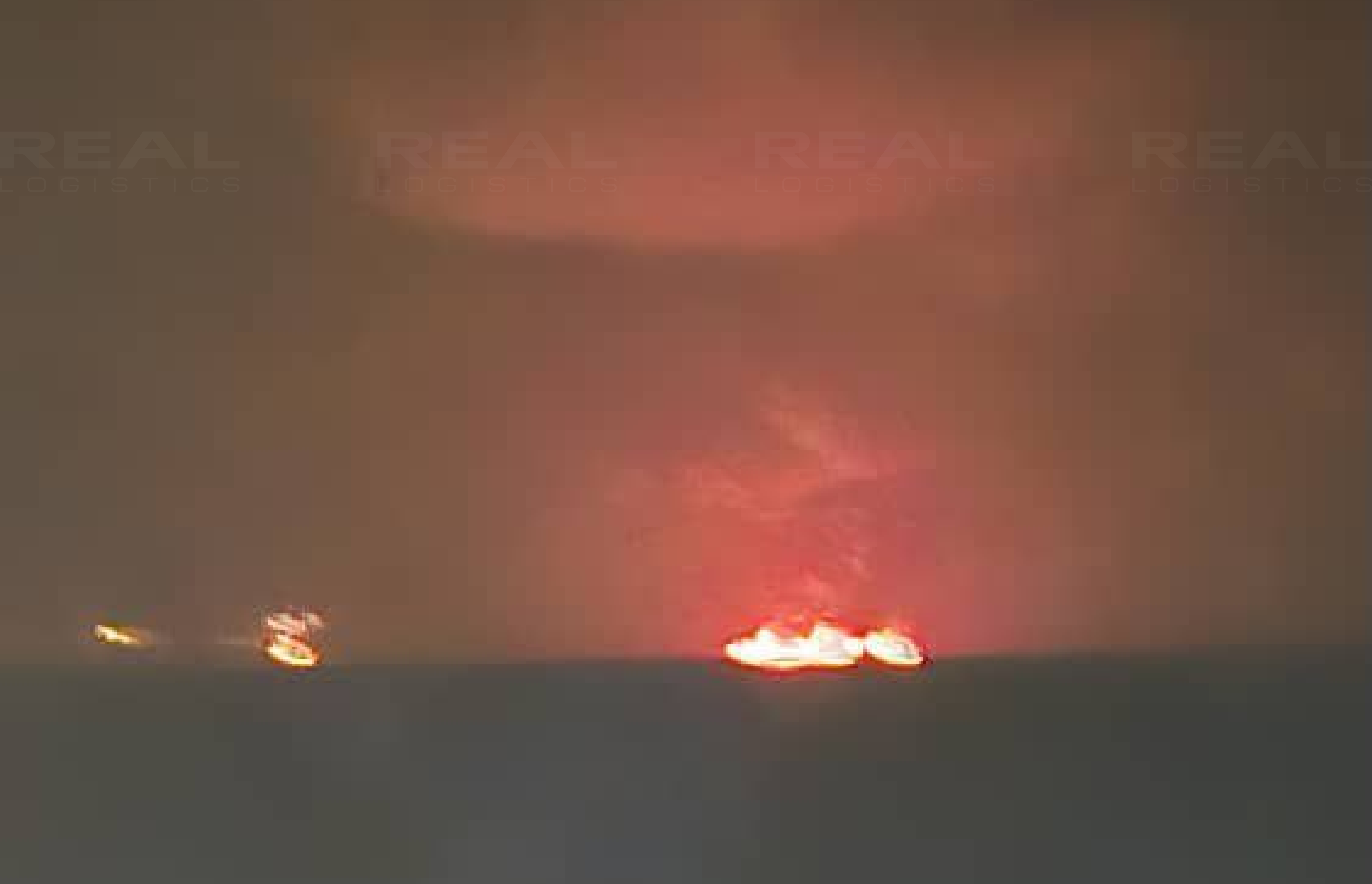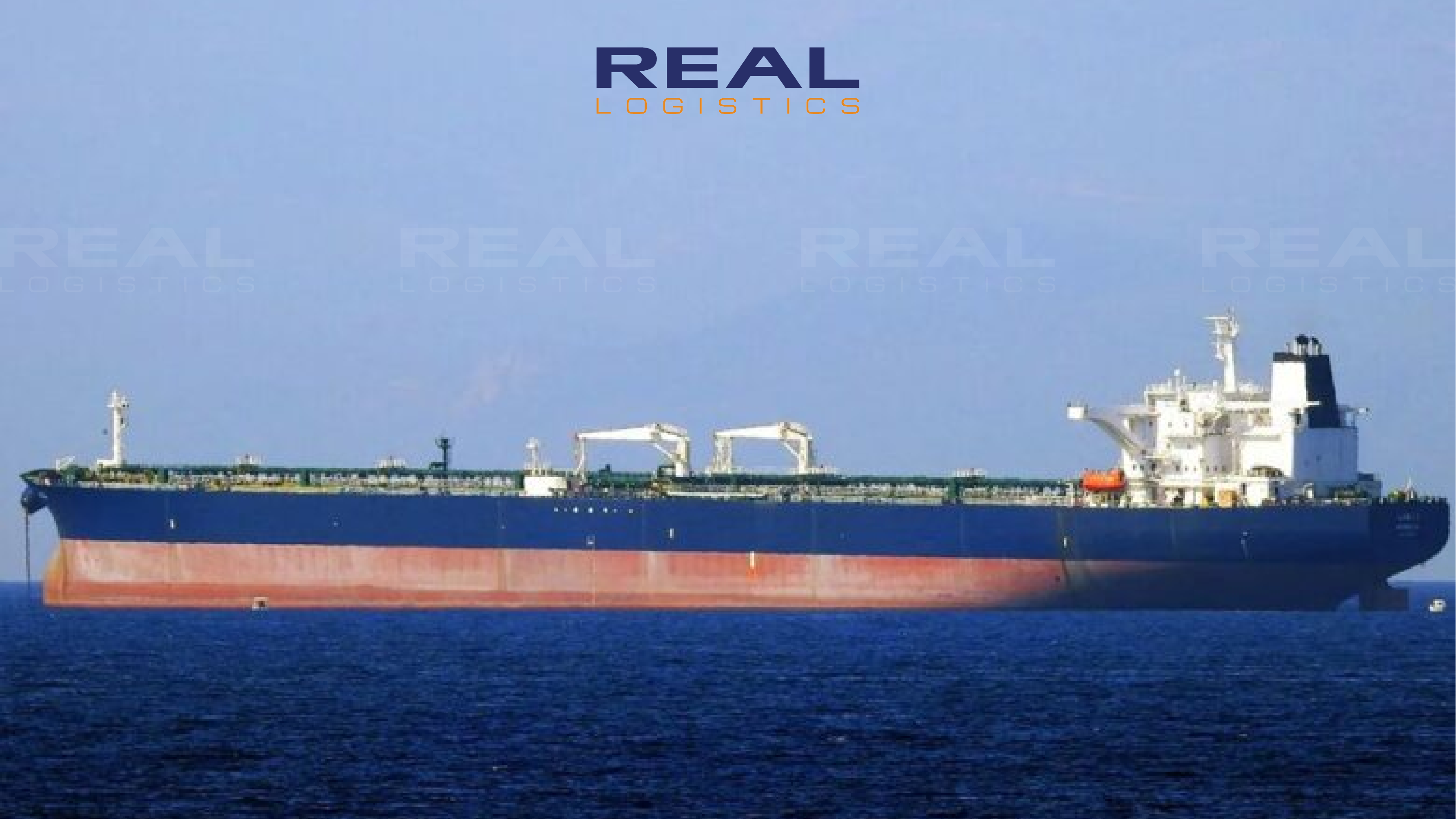Urgent Alert: Serious Tanker Collision in Gulf of Oman, East of the Strait of Hormuz - Electronic Warfare
1. Initial Developments and Immediate Aftermath
At 01:14 AM on June 17, 2025 (Dubai time), corresponding to 21:14 UTC on June 16, a major maritime incident unfolded near the Khor Fakkan anchorage, Gulf of Oman, approximately 22-24 nautical miles east of the UAE coast. Two crude oil tankers were involved in a severe collision:
- M/T Adalynn: Aframax, 23 years old, 164.551 DWT, flagged in Antigua & Barbuda, part of the "shadow fleet," in ballast and en route to the Suez Canal.
- M/T Front Eagle: VLCC, 5 years old, 299.550 DWT, flagged in Liberia, owned by Frontline, and laden with crude oil bound for Zhoushan, China.
*No Third Vessel Involved: While initial reports and social media speculation suggested up to three vessels were affected, data from MarineTraffic and other reliable sources confirm the collision involved only the Adalynn and Front Eagle.

The collision ignited a large fire on board the Adalynn. Images of the blaze quickly circulated, initially raising fears of an attack. However, it was later confirmed as a collision. Fortunately, all 24 crew members from the Adalynn were safely evacuated to the port of Khor Fakkan by the UAE Coast Guard. The crew aboard the Front Eagle were also reported safe. Firefighting efforts successfully contained the blaze, preventing a major oil spill from the fully-laden Front Eagle. Experts suggest the impact may have caused oil leakage or ruptured tanks on the Front Eagle, with sparks from the collision potentially igniting fuel on the Adalynn (despite it being in ballast). The Front Eagle is currently listed as "not under command."
The investigation into the collision's cause is ongoing. Maritime authorities and shipping companies are on high alert for potential disruptions in this critical strategic region, especially given the rising frequency of electronic interference incidents.
2. Severity Beyond a Typical Accident
This was no ordinary maritime accident. Updated information from maritime experts, including Sal Mercogliano, highlights several complex factors:
- "Electronic Warfare" at Sea: MarineTraffic data for the Front Eagle clearly shows the vessel experiencing GPS spoofing, with its position erratically jumping between its actual route and the Iranian port of Bandar Abbas just before the collision. Sal Mercogliano noted that in conditions of good visibility and fair weather, the Front Eagle's sudden, unusual turn to starboard is highly suspicious, virtually ruling out human error. This strongly supports the hypothesis that GPS spoofing corrupted the data input to the vessel's autopilot system, leading to a port-to-port hit.
- Ignored Electronic Interference Warnings: Organizations like the UK Maritime Trade Operations (UKMTO) and the US-led Joint Maritime Information Centre (JMIC) have repeatedly warned of escalating GPS jamming and spoofing in the Persian Gulf. This incident tragically underscores the critical danger posed by these often-overlooked alerts.
- Heightened Regional Tensions: Although the collision was not an intentional attack, it occurred amidst escalating tensions between Iran and Israel. The complex geopolitical landscape in this region consistently elevates maritime risks and may indirectly contribute to an increase in electronic interference activities.
- Shadow Fleet Risks: The Adalynn's affiliation with the "shadow fleet" (vessels often operating outside standard regulations, making them difficult to track) adds complexity to investigations and risk management, highlighting challenges in ensuring comprehensive maritime safety.
- Lack of Emergency Response: Mercogliano also raised concerns about the absence of a "Mayday" signal and the limited response or assistance from other vessels at the scene, which questions emergency protocols and overall situational awareness among ships in the area.

3. Impact on Global Supply Chains & Logistics
The incident immediately sent ripples through the market:
- Surging Oil Prices: Concerns over maritime security in the Strait of Hormuz – the vital artery for 20% of global oil shipments – have driven oil prices higher. This directly impacts fuel costs, sea freight rates, and ultimately, commodity prices worldwide.
- Increased Insurance Premiums: Marine insurers are re-evaluating risks, leading to higher premiums for vessels operating in the region, especially those traversing electronic interference hotspots.
- Risk Management Challenges: Logistics companies and cargo owners face new hurdles in route planning, managing transit times, and contingency planning for unforeseen incidents.
- Shipper Caution: Many shipping companies are reconsidering routes, increasing security measures, or even canceling voyages through the Strait of Hormuz, causing potential disruptions to schedules and shipping capacity.
4. Red Sea to Gulf of Oman: "Electronic Warfare" at Sea Alert
In just over a month, the maritime industry has seen recurring serious incidents caused by navigation signal interference. On May 10, 2025, the MSC Antonia ran aground off Jeddah (Red Sea) due to suspected GPS spoofing. Then, on June 17, 2025, the collision between Adalynn and Front Eagle in the Gulf of Oman was also directly linked to this phenomenon.
.webp)
Both incidents highlight a growing threat: deliberate interference with ship navigation systems. Shipping companies can no longer solely rely on technology. Enhanced awareness, redundant solutions, and stronger manual navigation skills are crucial for maritime safety in this new era.
5. Practical Recommendations from Real Logistics
Given the complex maritime security landscape and the growing threat of "electronic warfare," Real Logistics offers the following practical recommendations for your business:
Do Not Rely Solely on GPS/AIS:
- Prioritize Manual Control: Ensure crew members are proficient in traditional navigation methods (paper charts, compass, sextant). Crucially, do not allow automated navigation systems (autopilot) to operate solely based on potentially compromised GPS data in high-risk areas. Sal Mercogliano, a maritime historian at Campbell University and former merchant mariner, emphasizes prioritizing manual helm control for full situational awareness.
- Utilize Auxiliary Navigation Systems: Equip vessels with alternative positioning technologies that don't rely entirely on GPS (e.g., eLoran where available, inertial navigation systems, radar).
Proactively Assess Route Risks:
- Analyze "Hotspots": Stay informed about areas known for electronic interference and geopolitical tensions. Consider alternative, safer routes even if they involve additional time or cost.
- Monitor Maritime Warnings: Subscribe to timely advisories from reputable organizations like UKMTO, JMIC, and national maritime authorities for specific security updates.
Collaborate Closely with Partners and Insurers:
- Clear Contractual Terms: Ensure shipping and insurance contracts clearly define liabilities and compensation in cases of incidents caused by electronic interference or geopolitical risks.
- Request Detailed Information: Understand the safety measures, technologies, and procedures your shipping partners employ to mitigate risks when operating in high-threat areas.
The incident in the Gulf of Oman serves as a stark reminder of the new and complex risks facing the logistics and shipping industries. Real Logistics is committed to being your trusted partner, providing timely information and optimal solutions to help your business navigate these challenges safely and efficiently.
—————————————
Real Logistics Co.,Ltd
👉 Facebook: Real Logistics Co.,Ltd
☎️ Hotline: 028.3636.3888 | 0936.386.352
📩 Email: info@reallogistics.vn | han@reallogistics.vn
🏡 Address: 39 - 41 B4, An Loi Dong, Thu Duc, HCM City
51 Quan Nhan, Nhan Chinh, Thanh Xuan, Ha Noi City

